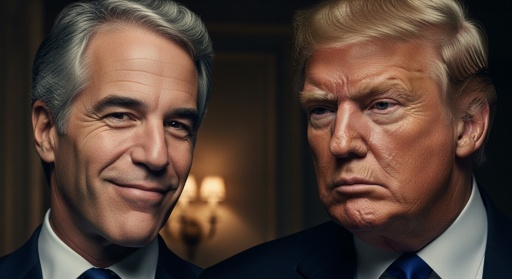Major Wall Street banks including JPMorgan Chase, Deutsche Bank, and Barclays deliberately maintained lucrative business relationships with convicted sex offender Jeffrey Epstein for over a decade after his 2008 conviction, prioritizing profits over basic moral standards and compliance requirements.
Wall Street’s Profitable Partnership with a Predator
JPMorgan Chase, Deutsche Bank, and Barclays executives made calculated decisions to maintain banking relationships with Jeffrey Epstein years after his 2008 guilty plea for soliciting prostitution from a minor. These institutions continued providing financial services to a convicted sex offender, demonstrating how elite financial circles prioritize revenue over fundamental decency. Federal regulators have since imposed considerable blowback on bank executives who enabled these relationships to persist until Epstein’s 2019 arrest.
Epstein’s business model specifically targeted clients worth $1 billion or more, making him an exceptionally valuable account despite his criminal conviction. The exclusive nature of his money-management firm, established in 1988, created substantial revenue streams that banks were unwilling to abandon. This greed-driven decision-making process reveals how major financial institutions operate with different ethical standards when massive profits are involved, undermining public trust in banking oversight.
Elite Connections Facilitated Banking Tolerance
Epstein cultivated relationships with prominent figures throughout the 1990s, including political and entertainment elites, which provided social credibility that banks used to justify continued business relationships. His associate Ghislaine Maxwell managed his household staff and facilitated access to elite circles that included many banking connections. These high-profile associations created a protective social network that enabled financial institutions to rationalize maintaining accounts with a convicted criminal.
Bear Stearns maintained particularly deep ties with Epstein, where he had invested approximately $60 million in hedge funds tied to the mortgage market during the 2007-2008 financial crisis. Leon Black, billionaire head of Apollo Global Management, utilized Epstein’s tax expertise for various transactions, exemplifying how prominent financiers maintained professional relationships despite legal troubles. This pattern of elite protection demonstrates how wealthy connected individuals can operate outside normal accountability structures.
Regulatory Failure Exposes System Weakness
The continuation of banking services after Epstein’s 2008 conviction represents either catastrophic risk assessment failures or deliberate decisions to prioritize revenue over compliance requirements. Financial institutions are legally required to conduct thorough due diligence and terminate relationships with clients who pose unacceptable reputational risks. The systematic failure across multiple major banks suggests industry-wide problems with politically exposed persons and high-risk client protocols that regulators failed to address.
Court documents released through New York Southern District Judge Loretta Preska’s December order have provided additional insight into the scope of Epstein’s financial relationships and institutional enablement. Information about banking community ties with Epstein has been trickling out for more than two years, indicating the full scope of institutional involvement may still be emerging. This ongoing revelation process suggests additional banks or financial relationships may yet be disclosed, further exposing regulatory oversight failures.
Sources:
The Epstein Files: A Timeline – Britannica
Jeffrey Epstein Wall Street Connections – Fox Business
Jeffrey Epstein’s Impact on the Banking Industry – American Banker
Rise and Fall of Jeffrey Epstein Timeline – ABC News

